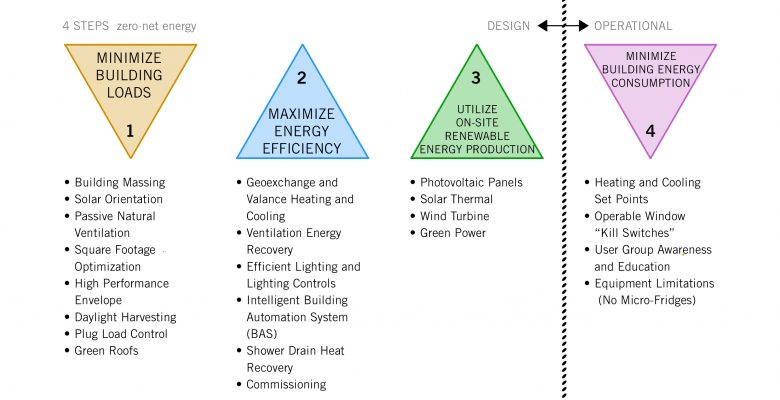Residence Halls provide a unique educational opportunity for students, since they can learn about and experience a lifestyle that embodies sustainable practices and engages them as active participants in reducing energy use for the building. The Massachusetts State College Building Authority (MSCBA) and Bridgewater State University (BSU) took advantage of a Zero Net Energy Building (ZNEB) pilot study to research design strategies and building systems that will advance the planning and design of future residence halls. Perkins+Will led a collaborative design and construction team, which included Rist Frost Shumway Engineering and Bond Brothers Construction. Working closely with MSCBA and BSU, the team developed a detailed case study that ultimately led to successful identification and implementation of low energy strategies for the Weygand Residence Hall at BSU. This article defines the framework and decisions that were made at each step of the journey from conceptual design and projected energy calculations to building operations and maintenance. A ZNEB requires significant energy load reductions by implementing energy-efficient design strategies, including the optimization of building envelope, smart and efficient system selection and a renewable energy generation plan. High occupancy and significant energy demand in residence halls necessitate consideration of new ideas about energy consumption as well as policy changes to enable paradigm shifts in user behavior to reach a ZNEB goal. This study positioned BSU to implement several strategies that reduced energy consumption at Weygand Hall and provided lessons learned for future residential hall designs.
This article originally appeared in Vol 05.02 of the Perkins+Will Research Journal. CLICK HERE to see the whole article.

